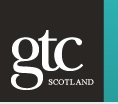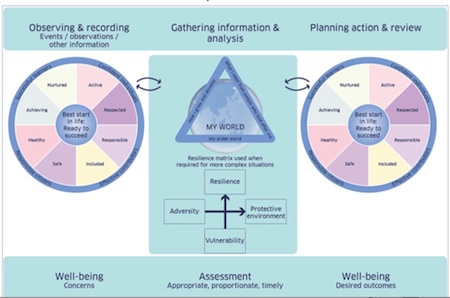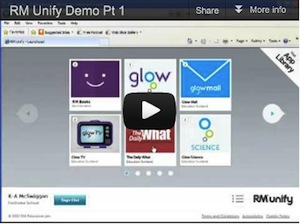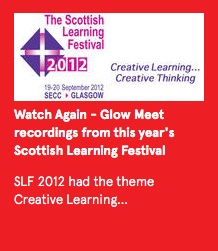 GTCS is planning to launch a professional recognition award for creativity and is looking for CLNs to help share the news in local authorities across Scotland. Applicants must have been teaching for two years to be eligible. GTCS are happy to be contacted directly with any queries about the award and the application process.
GTCS is planning to launch a professional recognition award for creativity and is looking for CLNs to help share the news in local authorities across Scotland. Applicants must have been teaching for two years to be eligible. GTCS are happy to be contacted directly with any queries about the award and the application process.
Contact:
Mairi McAra <Mairi.McAra@gtcs.org.uk> or
Glenise Borthwick <Glenise.Borthwick@gtcs.org.uk>
Please forward the following information to those you think may be interested:
Professional Recognition in ‘Creativity’
Deadline for submissions Monday 3rd December 2012 to be eligible for the national award ceremony in this new category in the Scottish Parliament on the evening of January 29th 2013
Hundreds of teachers have had their knowledge and skills recognised and been awarded with a certificate in Professional Recognition. We want you to join the group now being awarded the new category of ‘Creativity’. This will include dance, music, visual art, creativity in science, drama. In fact creativity covers a huge range of subjects.
Professional recognition allows registered teachers to focus their CPD in particular areas of interest, and gain recognition for enhancing their knowledge and experience.
In order to gain Professional Recognition teachers need to demonstrate their professional knowledge and understanding in four key areas:
Click here to read more about each of the following:
Subject/Curriculum
Professional knowledge
Professional skills and abilities
Reflecting, reporting and sharing
The Framework for Professional Recognition explains in detail how teachers can gain Professional Recognition. It was established to help teachers develop their knowledge and skills and to ensure that they are able to gain the recognition they deserve.
There are many areas in which primary and secondary teachers can gain professional recognition. Creativity is just one area.
How to apply for Professional Recognition
(Further details on our website www.gtcs.org.uk under ‘Professional Development’)
Steps in the application process
Before applying for Professional Recognition, applicants should follow these steps:
1. Carry out a personal self-evaluation
If eligible, you should undertake a personal self-evaluation to identify area(s) which you might wish to gain professional recognition.
2. Have a Professional Discussion with your manager
Once you have completed your self-evaluation, you should have a Professional Discussion with your manager/school/local authority/CPD co-ordinator to discuss your intention to work towards gaining professional recognition.
3. Complete your CPD programme
Now complete the CPD Programme agreed in your professional discussion, maintaining a profile following the Professional Action process.
4. Undertake a self-evaluation against the framework
Complete a Personal Evaluation against the Framework which will identify the knowledge/experience gained.
5. Discuss your submission with your manager
Your second Professional Discussion will see you discuss your professional recognition submission with your manager/school/local authority/CPD co-ordinator.
6. Apply for Professional Recognition
Download and complete our:
· Professional Recognition Application Form (PDF)
· Professional Recognition Application Form (Doc)
Place a copy of all the evidence noted in your application form in a portfolio
Your recommendation for professional recognition should be agreed and signed by your Headteacher.
Send your completed application to:
Professional Learning and Development Department
General Teaching Council for Scotland
Clerwood House
96 Clermiston Road
Edinburgh
EH12 6UT
CONTACTS
To discuss any aspect of Professional Recognition contact:
Professional Learning and Development Department
T: +44(0)131 314 6086
E: pld@gtcs.org.uk







